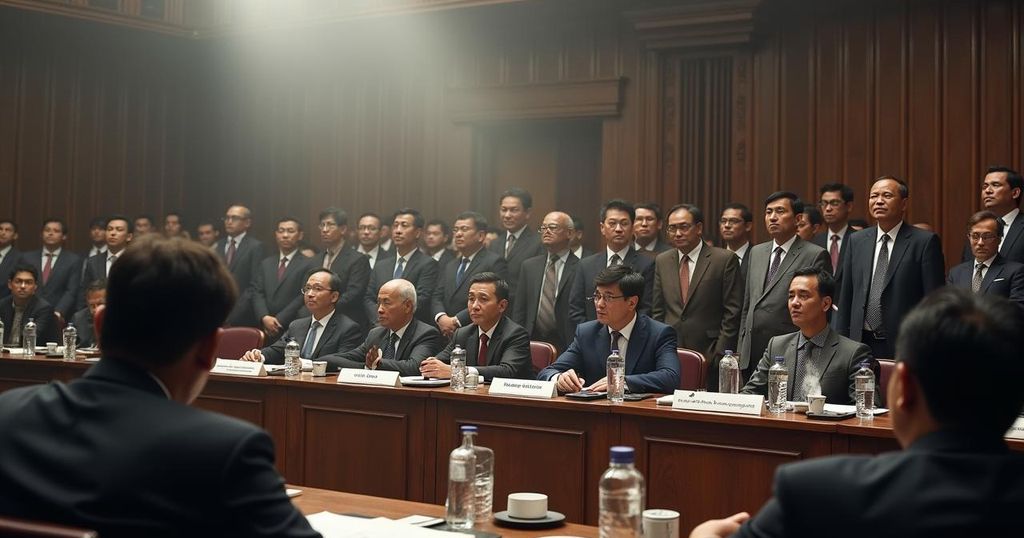The International People’s Tribunal ruled that Indonesia is responsible for crimes against humanity during the 1965-1966 mass killings, where between 500,000 to one million suspected communists were killed. The tribunal urged the government to apologize and compensate victims, investigate the crimes, and prevent further persecution.
The International People’s Tribunal held in The Hague concluded on July 20, 2023, that the Indonesian state bears responsibility for crimes against humanity related to the mass killings that occurred between 1965 and 1966, during which it is estimated that between 500,000 to one million individuals suspected of being affiliated with the Indonesian Communist Party (PKI) were executed. This military-led purge facilitated the ascent of former President Suharto’s New Order regime. The tribunal’s final verdict articulated that Indonesia is guilty of ten significant human rights violations, which include genocide targeted against PKI members, supporters of President Soekarno, as well as members of the Indonesian National Party (PNI). Presiding Judge Zak Yacoob stated in the report, “The State of Indonesia is responsible for and guilty of crimes against humanity consequent upon the commission and perpetration, particularly by the military of that state through its chain of command, of the inhumane acts.” In addition to the mass killings, the tribunal identified a range of severe violations committed by the state, including destruction, imprisonment, slavery, torture, forced disappearance, sexual violence, banishment, false propaganda, and international complicity. Judge Yacoob emphasized that these actions constituted part of a systematic, widespread assault against the PKI and its affiliates. He noted that initial false propaganda contributed to inciting these assaults. Furthermore, the judge asserted that the Indonesian state bears ultimate responsibility for the military’s violations and their affiliates due to the failure to prevent or punish these acts. He clarified, “To the extent that some crimes were committed independently of the authorities, by so-called ‘spontaneous’ local action, this did not absolve the State from the obligation to prevent their occurrence and to punish those responsible.” In closing, recommendations were made urging the Indonesian government to formally apologize to the victims, survivors, and their families for the atrocities committed in connection with the 1965 events. The tribunal called for thorough investigations into these crimes and the prosecution of those responsible. Additionally, it insisted that appropriate compensation and reparations be provided to the victims, emphasized the need for the rehabilitation of surviving victims, and urged preventive measures against any further persecution.
The mass killings of 1965-1966 in Indonesia were the result of a state-sanctioned purge of individuals believed to be linked to the Indonesian Communist Party (PKI). This period was marked by a widespread anti-communist sentiment fueled by the military and facilitated by the political upheaval that followed the transition of power from President Soekarno to General Suharto. The violence led not only to significant loss of life but also caused long-lasting trauma among the survivors and their families. As history has unfolded, calls for accountability and justice regarding these events have intensified, culminating in this international tribunal ruling.
The International People’s Tribunal has thereby formally recognized Indonesia’s culpability in the historic atrocities committed between 1965 and 1966, marking a significant point in the global dialogue on justice for victims of human rights violations. The recommendations from the tribunal highlight the necessity for the Indonesian government to acknowledge its past actions, engage in meaningful reparations, and ensure protections for the rights of survivors moving forward. This verdict will likely reignite discussions on the legacy of political violence in Indonesia and the imperative for reconciliation and accountability.
Original Source: jakartaglobe.id






